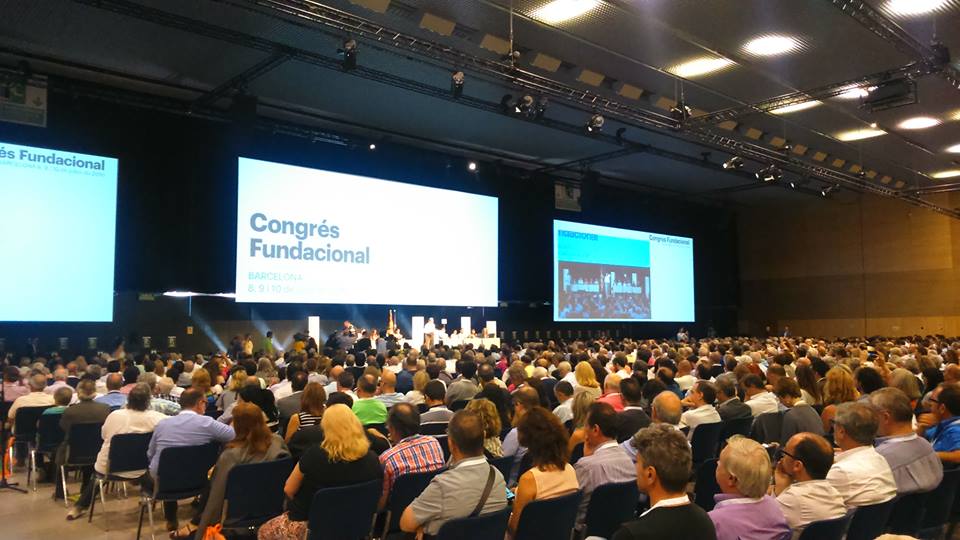Democratic Convergence of Catalonia (Convergencia Democratica de Catalunya – CDC), one of the leading parties in Catalonia, held its 18th and final congress on Friday 8th of July. Its former members founded a new party the same weekend with the aim to continue defending its political space with a completely revamped political formula which ticks all the boxes for a 21st-century party.
The story of the CDC starts in 1974. Then, in spite of a dictatorship, which had banned all political organizations, a group of people met near Barcelona to found a centrist political movement with the aim of ruling Catalunya and representing Catalans in the (then-future) central government. The CDC governed Catalunya, in coalition with Unió Democràtica de Catalunya (a Christian Democrat Catalan party), for 23 years in a row, until 2003. Then, despite still winning the elections, the 2nd 3rd and 4th biggest parties formed a coalition – excluding the CDC. 7 years later, after winning all elections in between, CDC became part of the Catalan government again. At the same time, a major part of Catalan society started to ask for more autonomy and more independence from the Spanish government. From then on, CDC changed its aim from a nation-based party to a State-based party, changed its partner in government (UDC was no longer in coalition with CDC) and became a party with new ideas. This situation brought the CDC to the point of asking its members if they considered that the Party had to be partially changed or fully changed, in order to fulfil 21st-century voter expectations. This resulted in the ‘new formula’ option, which brings us to the Friday 8th to Sunday 10th of July Congress.
In this context, Joventut Nacionalista de Catalunya (JNC, the youth organisation linked to both the old and the new organisation) took it upon itself to make the most radically democratic practices part and parcel of the new party. Thanks to the 200 JNC members who attended the new party’s congress after a two-month preparation process involving most JNC members, the youth organisation proposed numerous amendments to make the new party more transparent, open and horizontally organised.
JNC garnered enough support for 80% of its proposals, including many which were not supported by the former bureau, which meant the JNC had to actively lobby in their favour and participate in a vigorous debate. A few examples of these proposals are:
- primaries for Internal (party) and external (public) positions;
- term limits for all directly and indirectly elected positions, boosting the flow of talent from the bottom to the top;
- a new internal economical audit system;
- an internal democracy audit in order to check and ensure best practices and guarantee all internal democracy processes; and
- a table of public and private Incompatibilities which will prevent public workers from holding more than two public and party positions; this system will enable them to perform all their duties properly without having to prioritise one over the other.
As a result of debate during the congress, former CDC members choose a new party name. The new Catalan Democratic Party (Partit Demòcrata Català) is a social-liberal party with a revamped structure, a new profile, a digital spirit and a commitment to the legacy of over 30 years in government.
Víctor Colominas Ruiz is the international officer of Joventut Nacionalista de Catalunya. If you’d like to contact him you can email: vcolominas@jnc.cat

